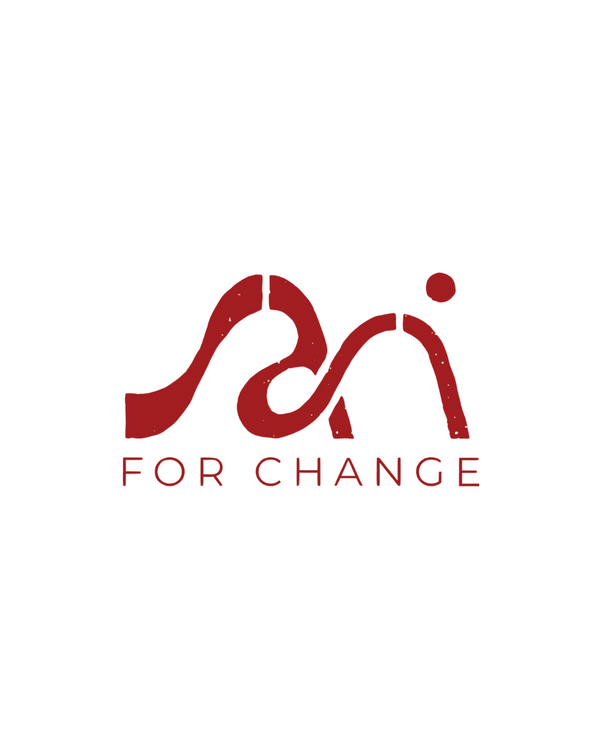Our Sacred Economy
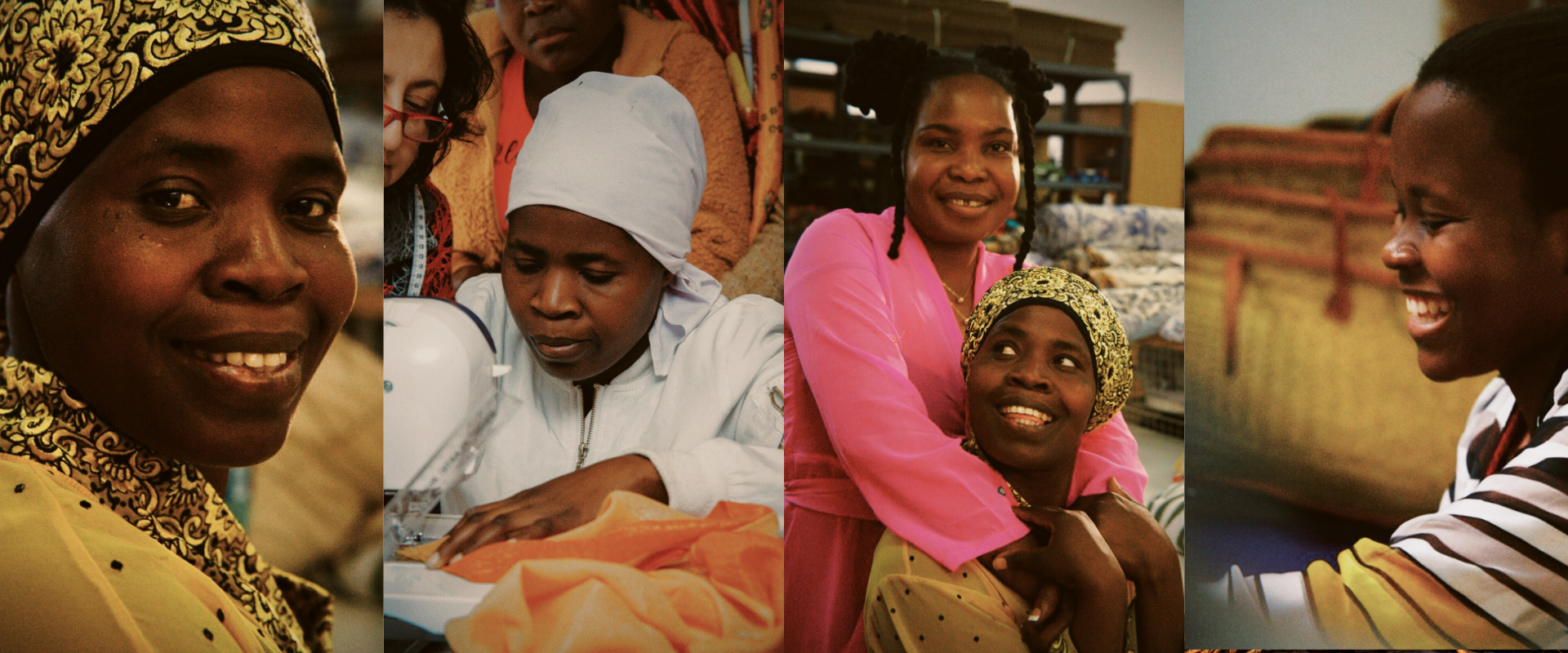
Women are our Heroes.
By teaching women to sew, design, and craft, they feed, teach and provide for their families and communities.
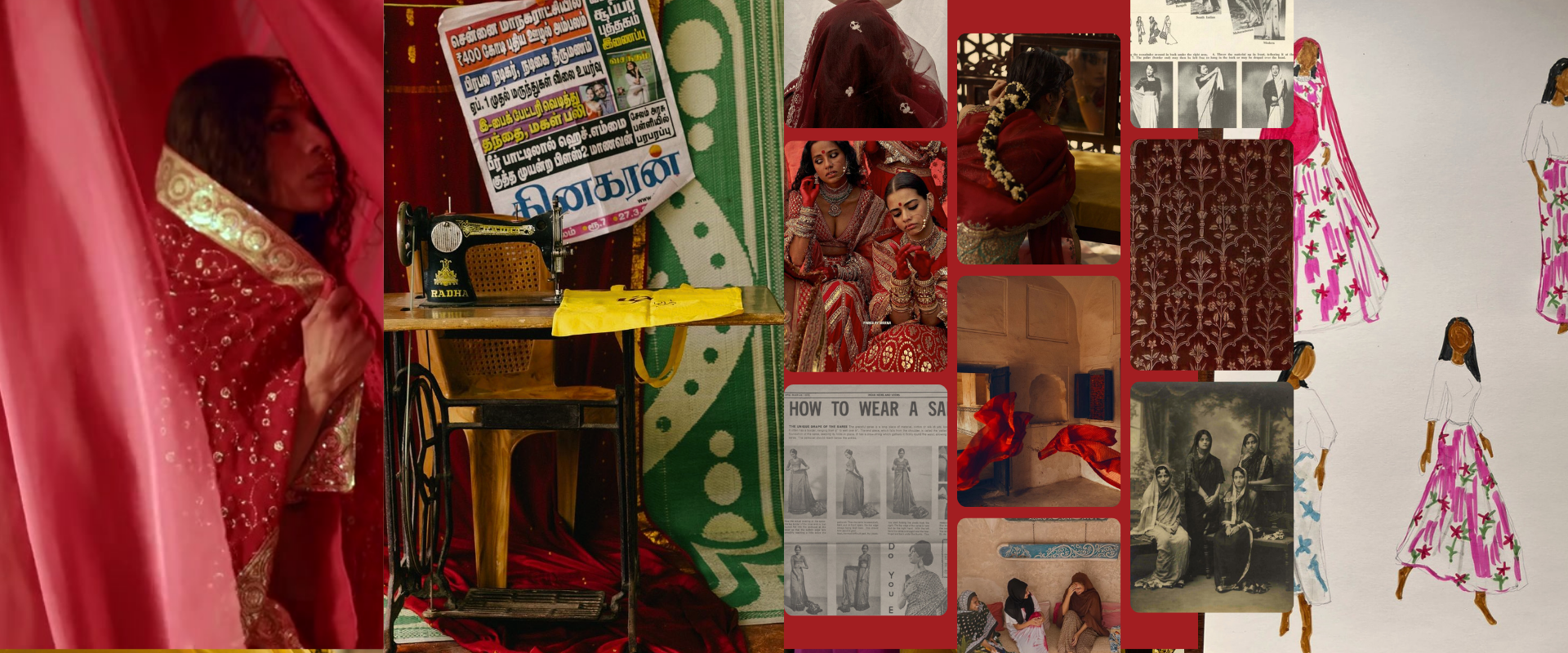
Preserving Tradition in Contemporary Fashion.
SFCF recycles, upcycles, repurposes, redesigns heritage textile reducing landfill waste.
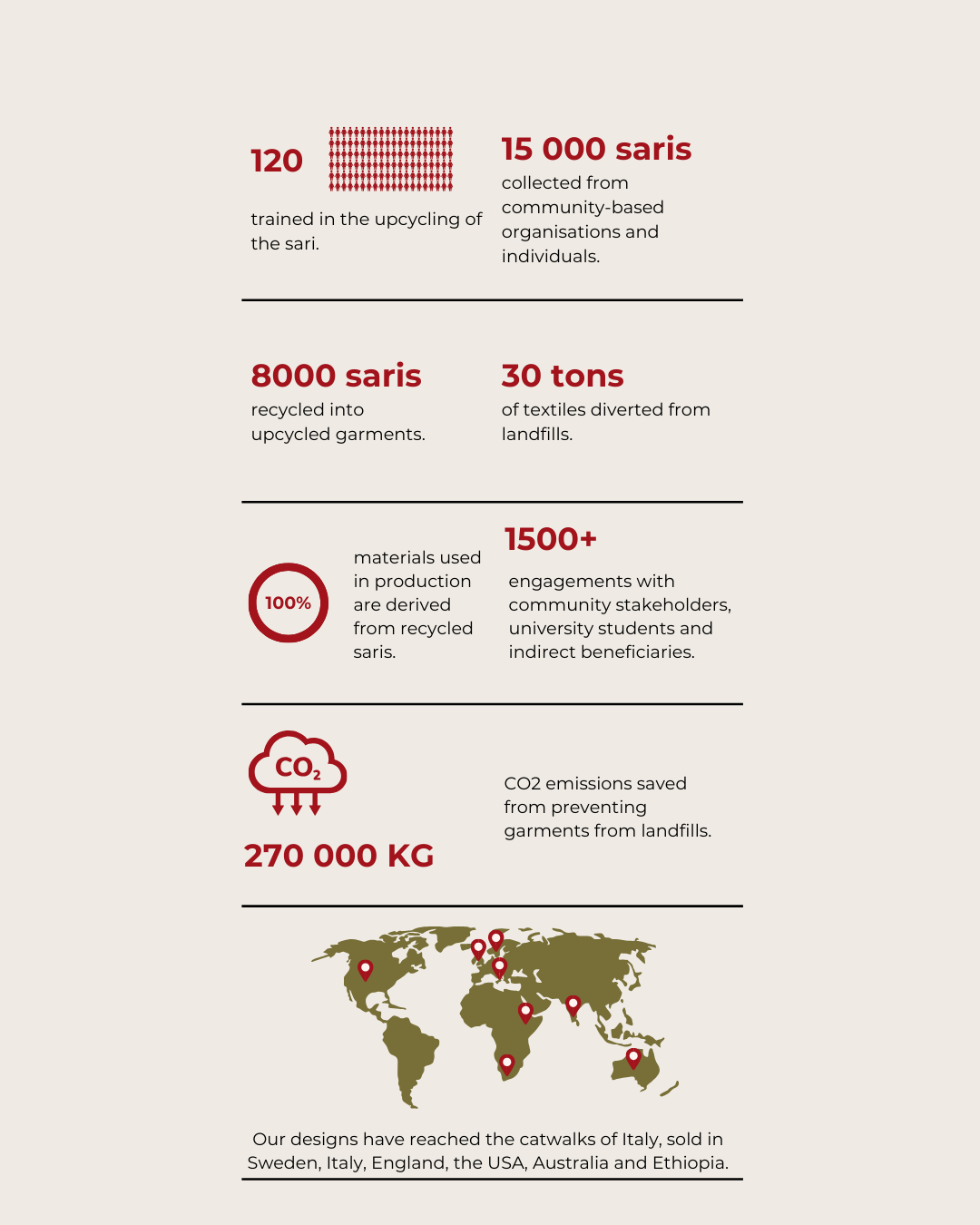
About SFC Foundation
At SFCF, we catalyze a just transition for women by providing opportunities to upskill through the creative use of upcycled textiles. Our programs enable participants to craft meaningful, sustainable livelihoods.
SFCF stands as a beacon of hope for women seeking opportunity, dignity, and a brighter future—one stitch, one story, one sari at a time.
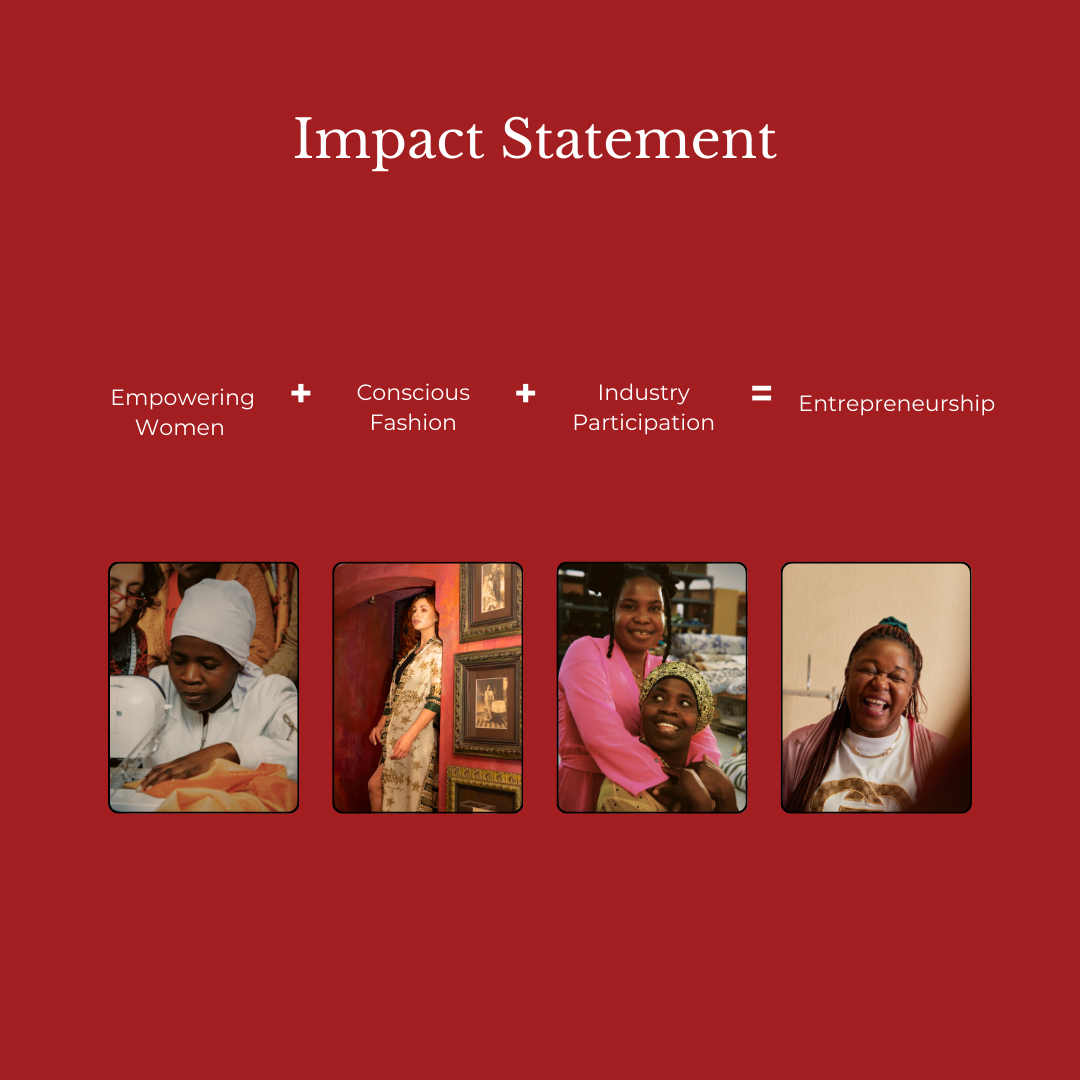
Our Mission
Our mission is to train 25,000 women across South Africa by 2030, using a Pay-It-Forward model where trained women become trainers themselves, establishing cooperative hubs to empower others.
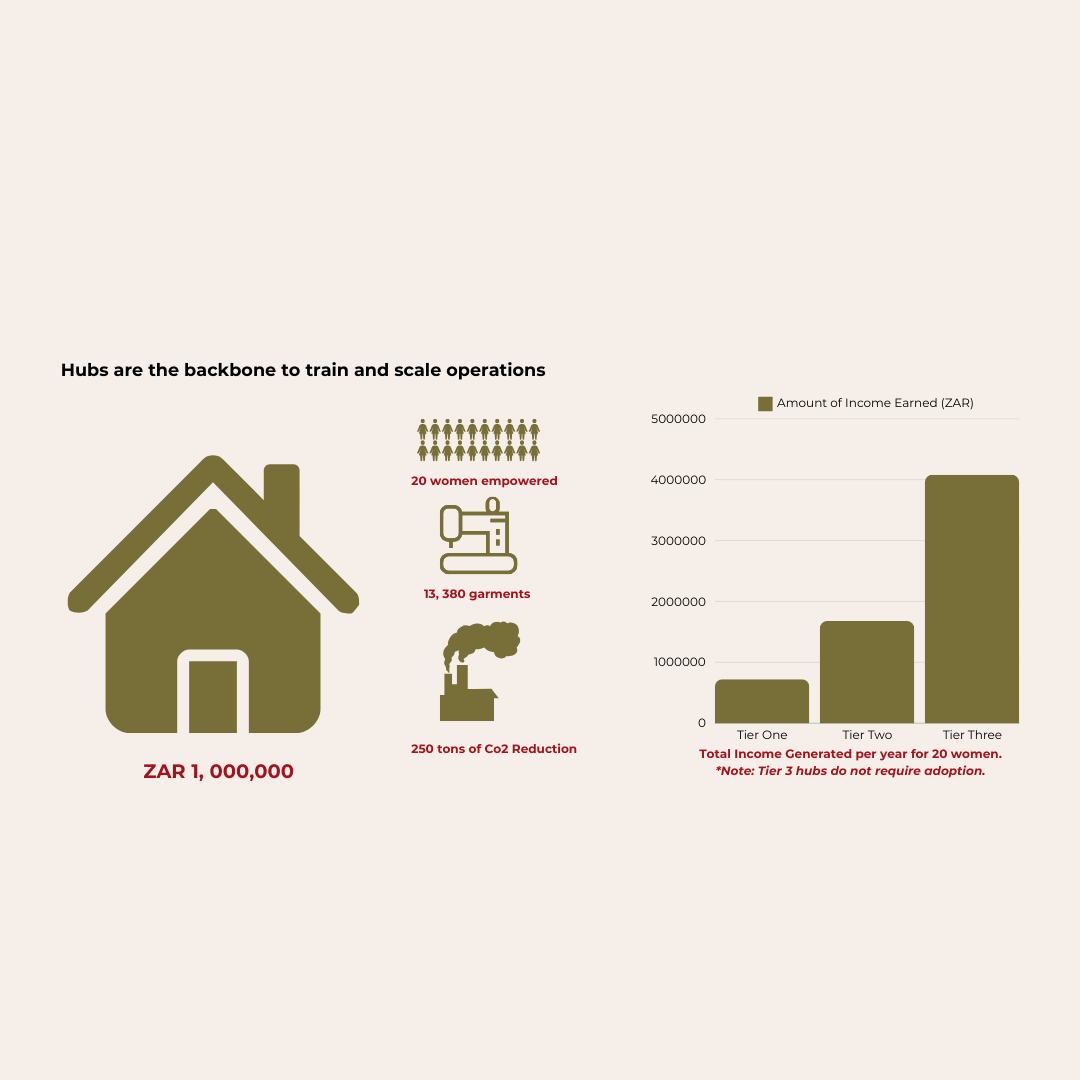
Adopt a Hub
The concept of adopting a hub is a strategic initiative by Sari for Change Foundation aimed at empowering local communities through sustainable development opportunities. This approach allows organizations, businesses, or individuals to sponsor and support the establishment and maintenance of skill development hubs in underserved areas.
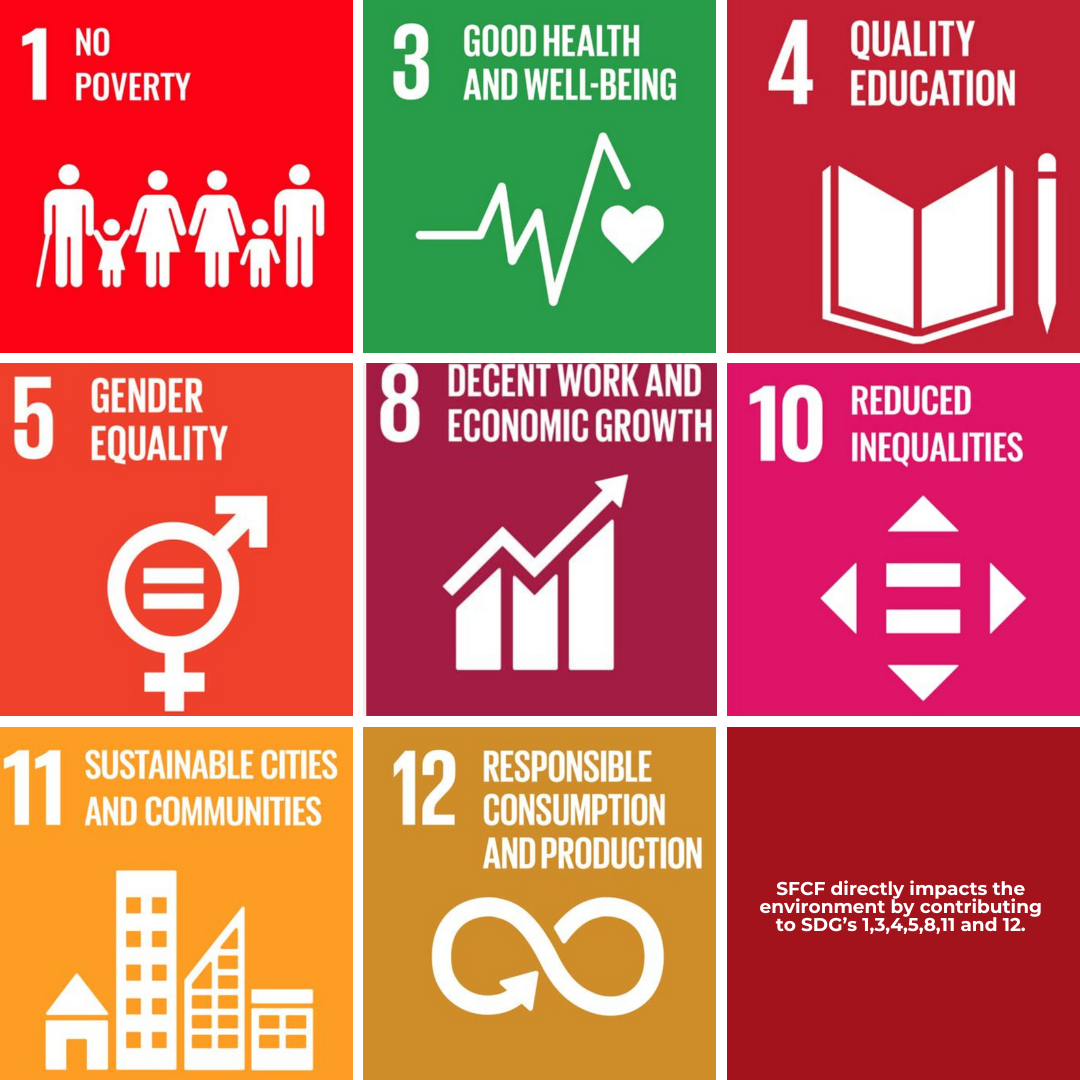
SFCF directly impacts the environment by contributing to SDG’s 1,3,4,5,8,11 and 12.
